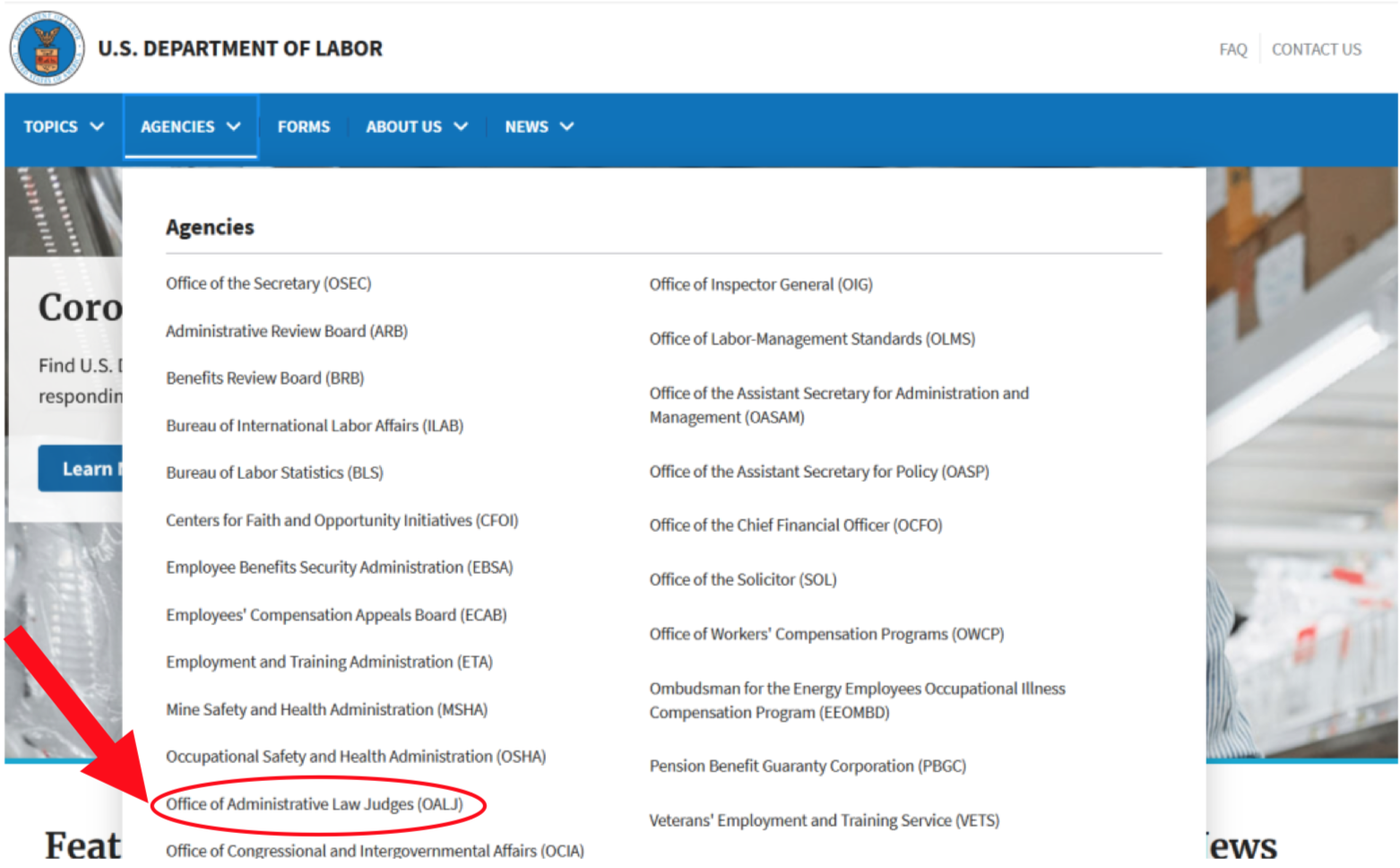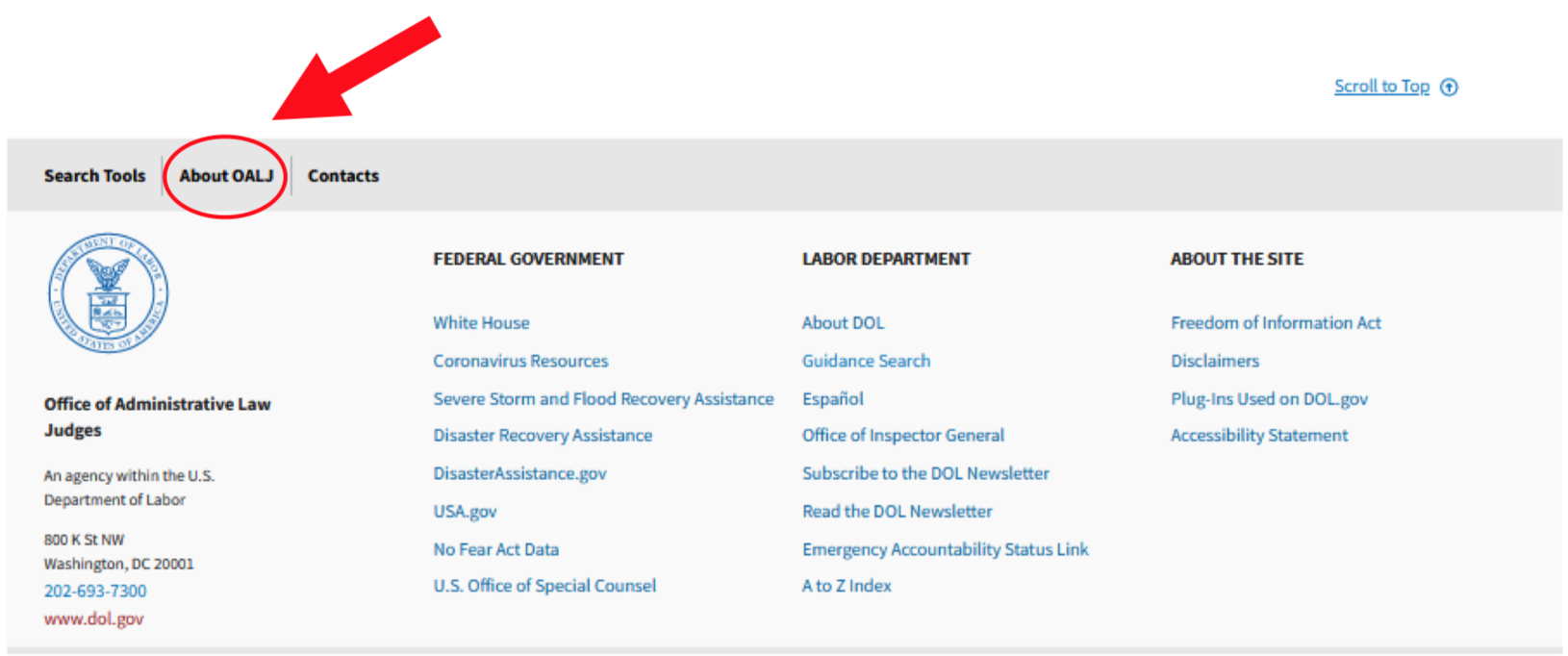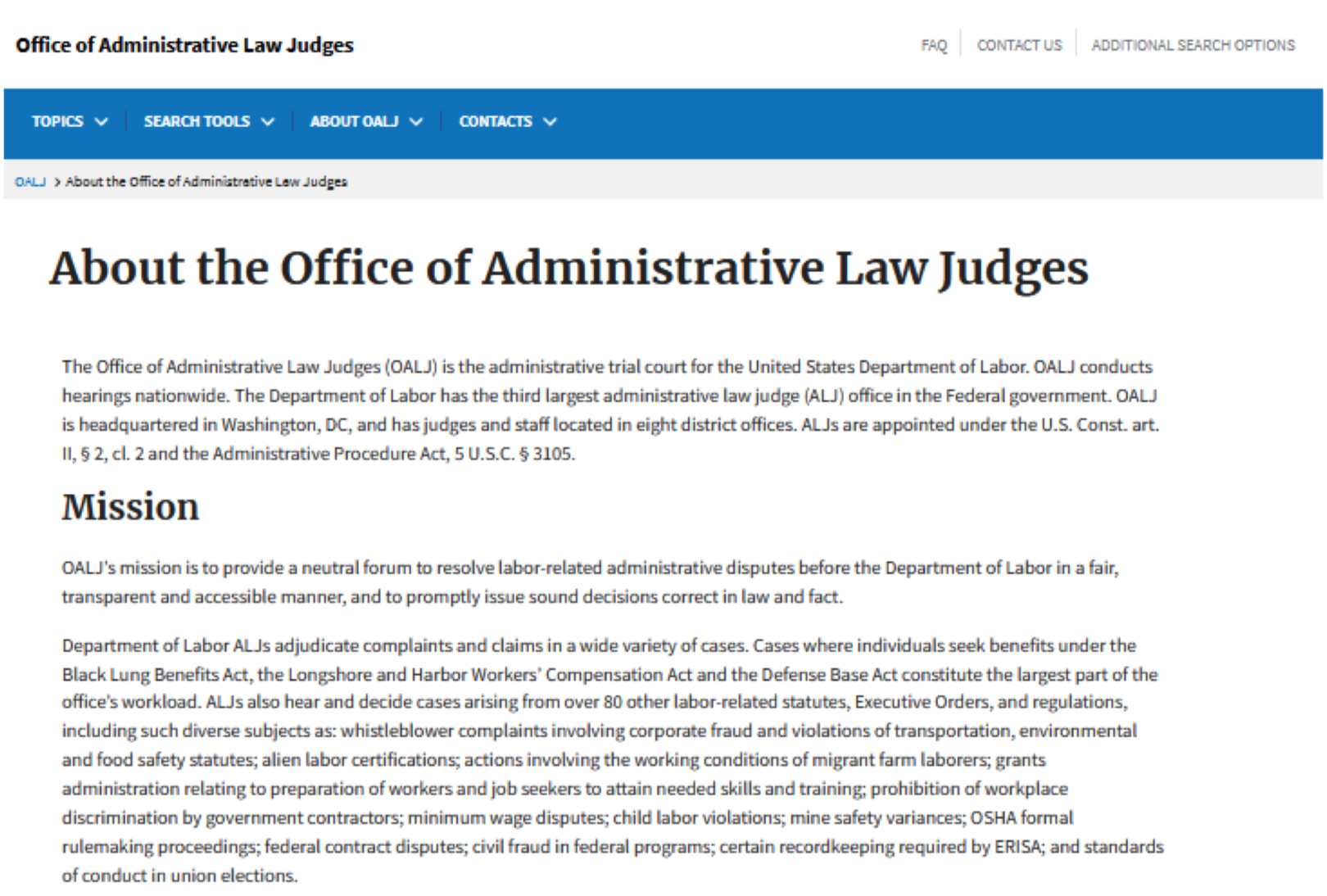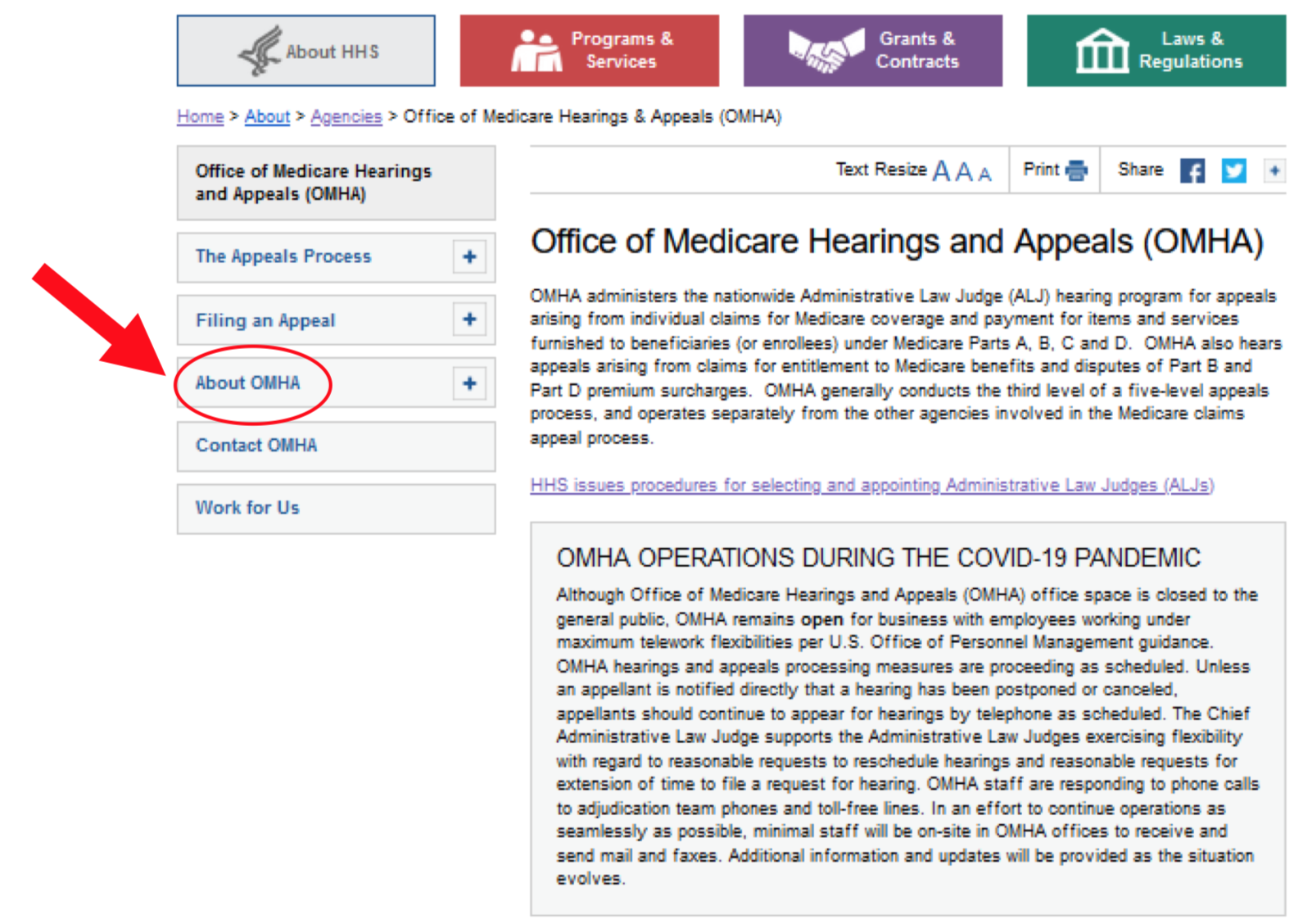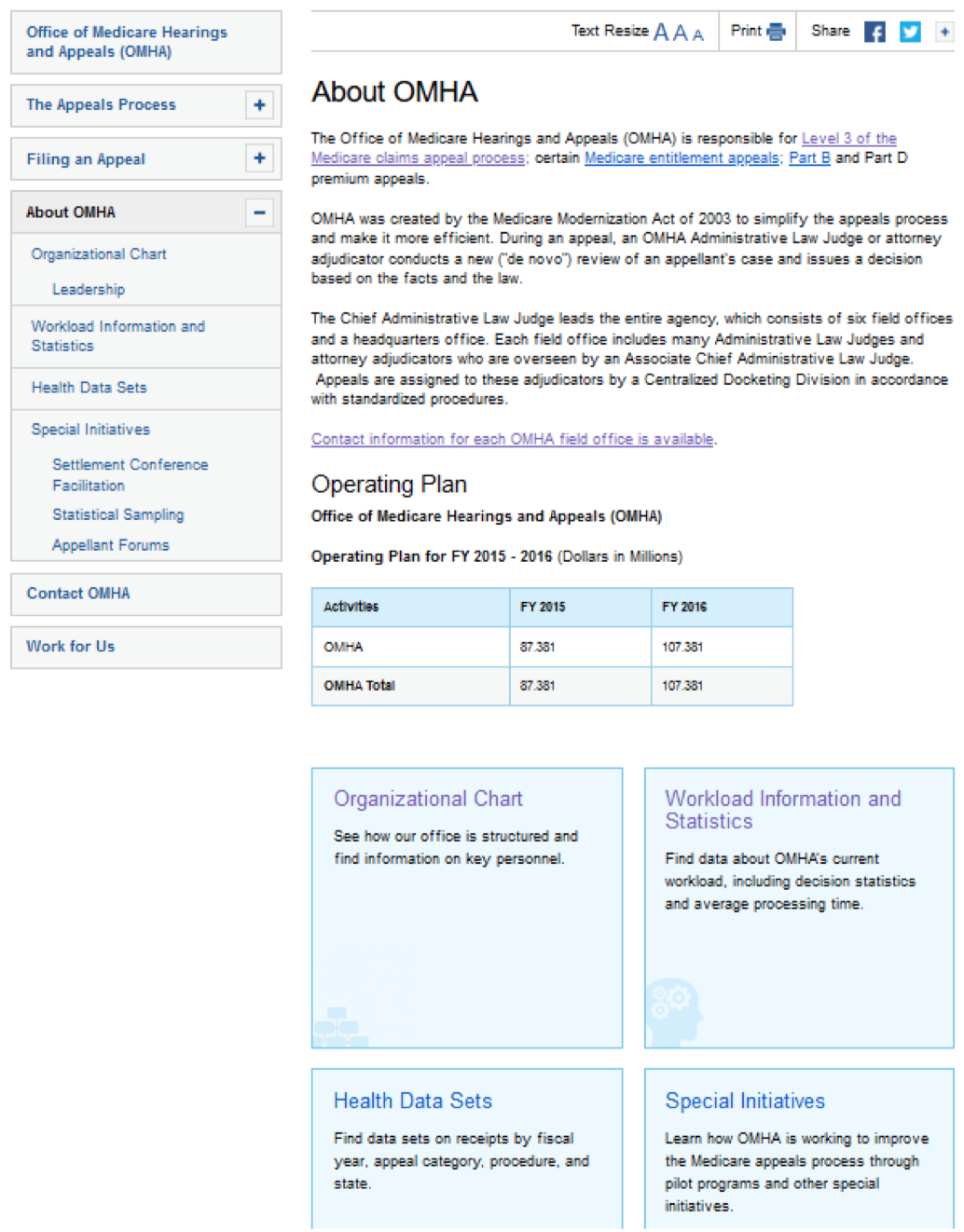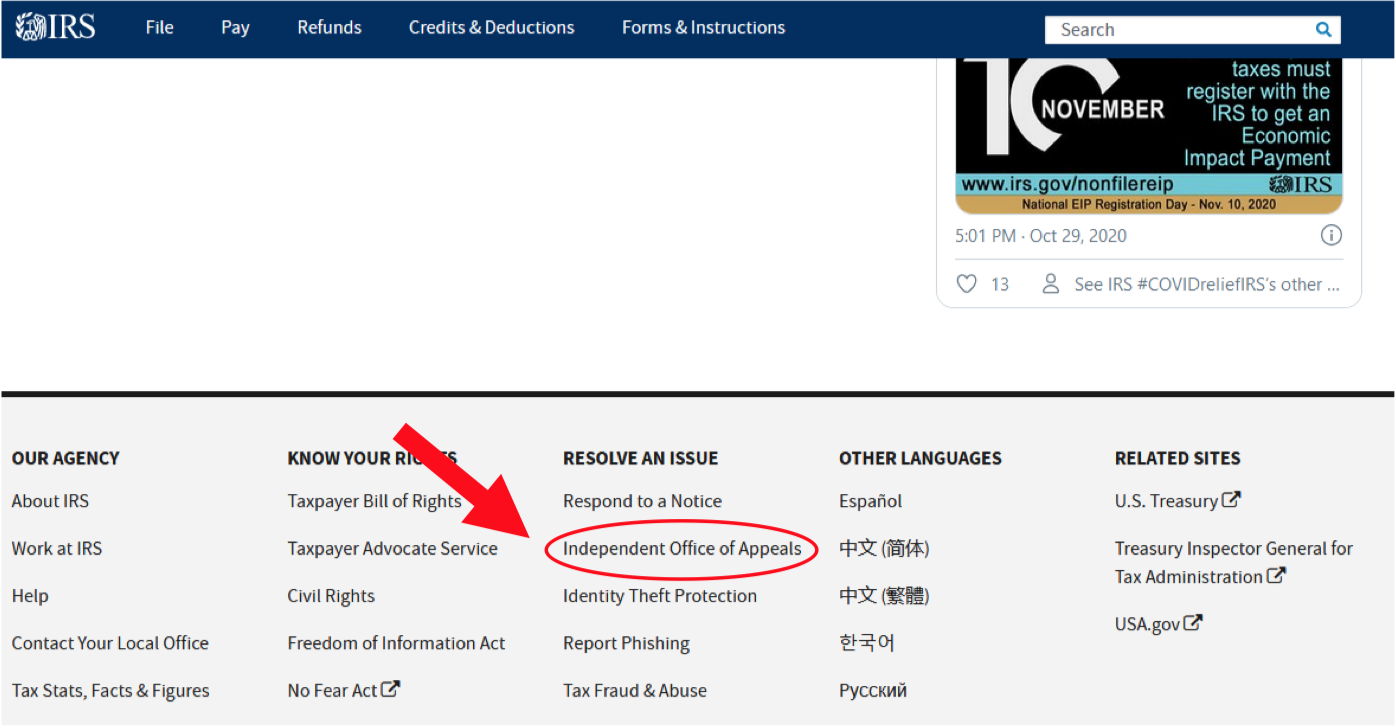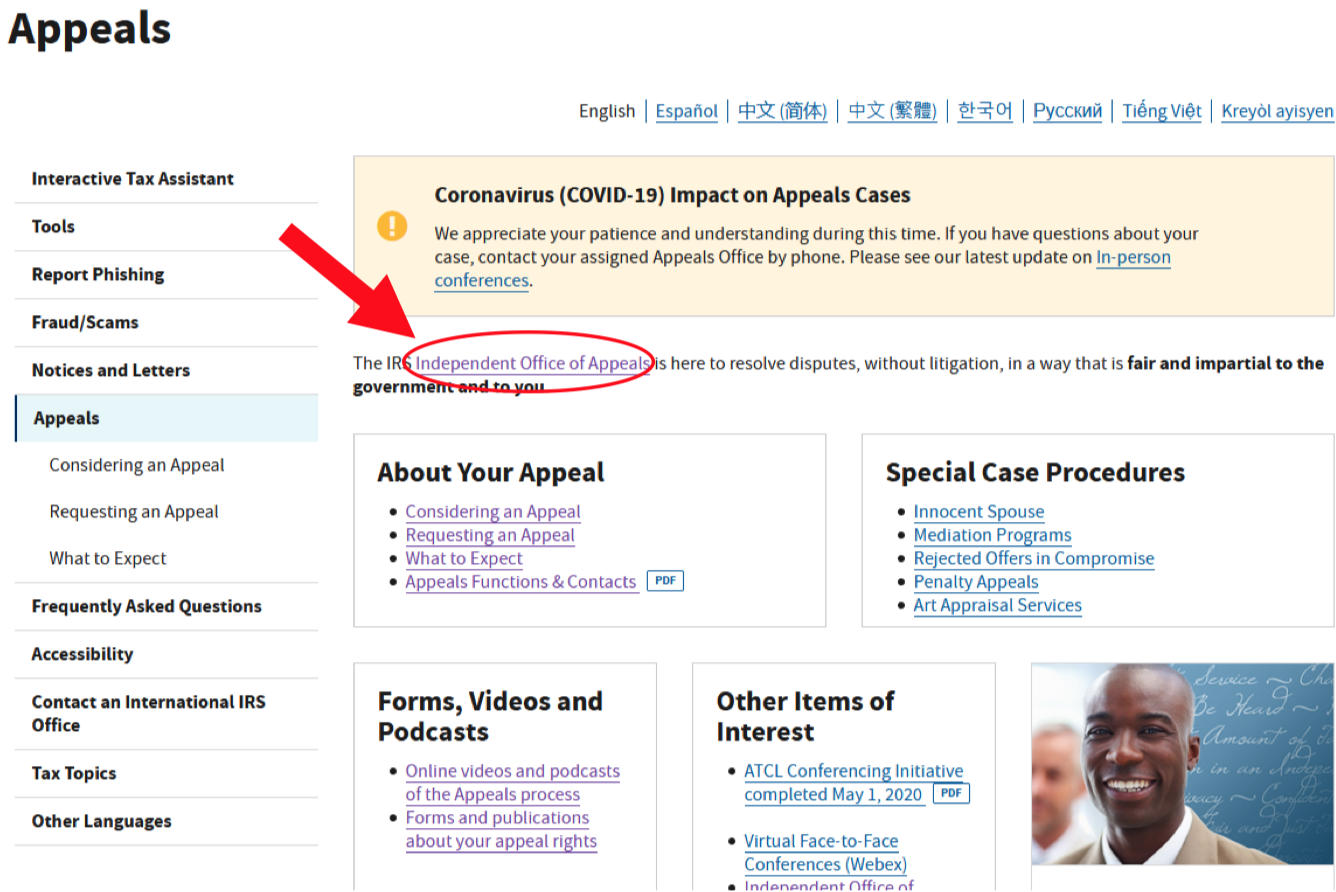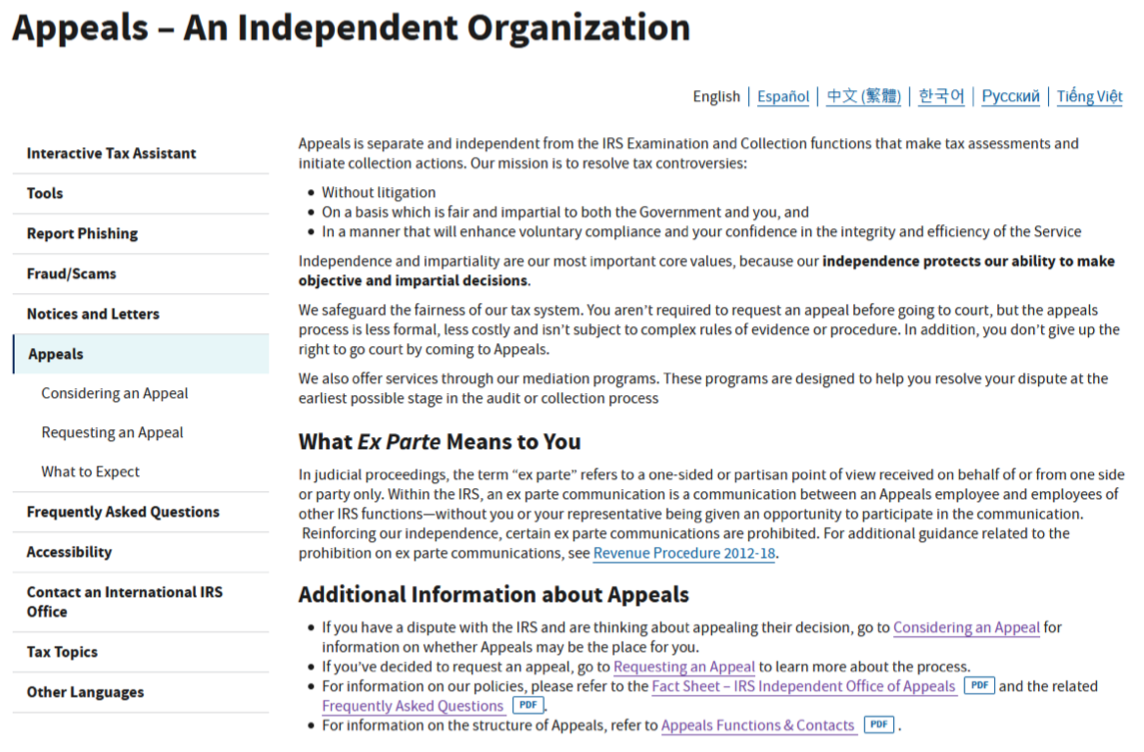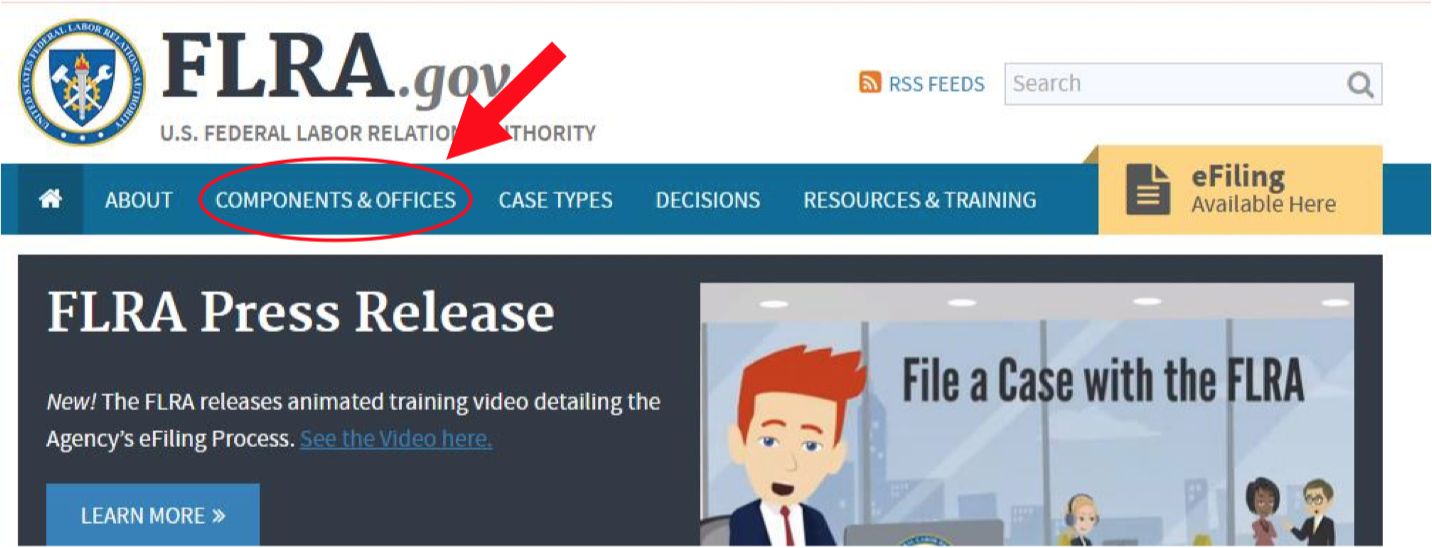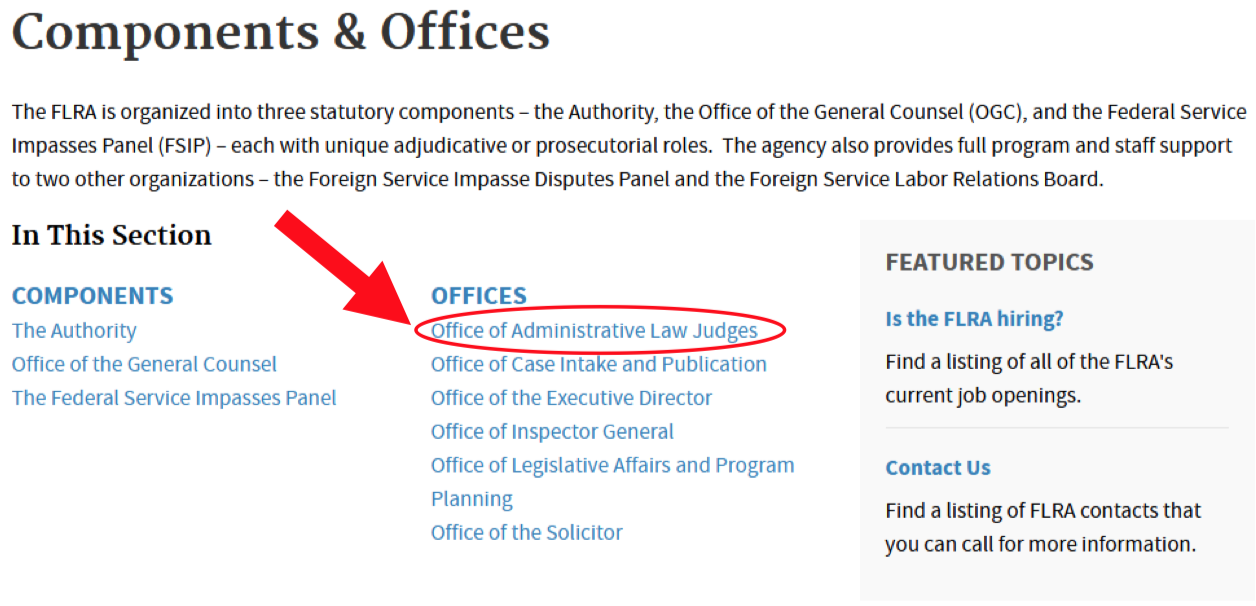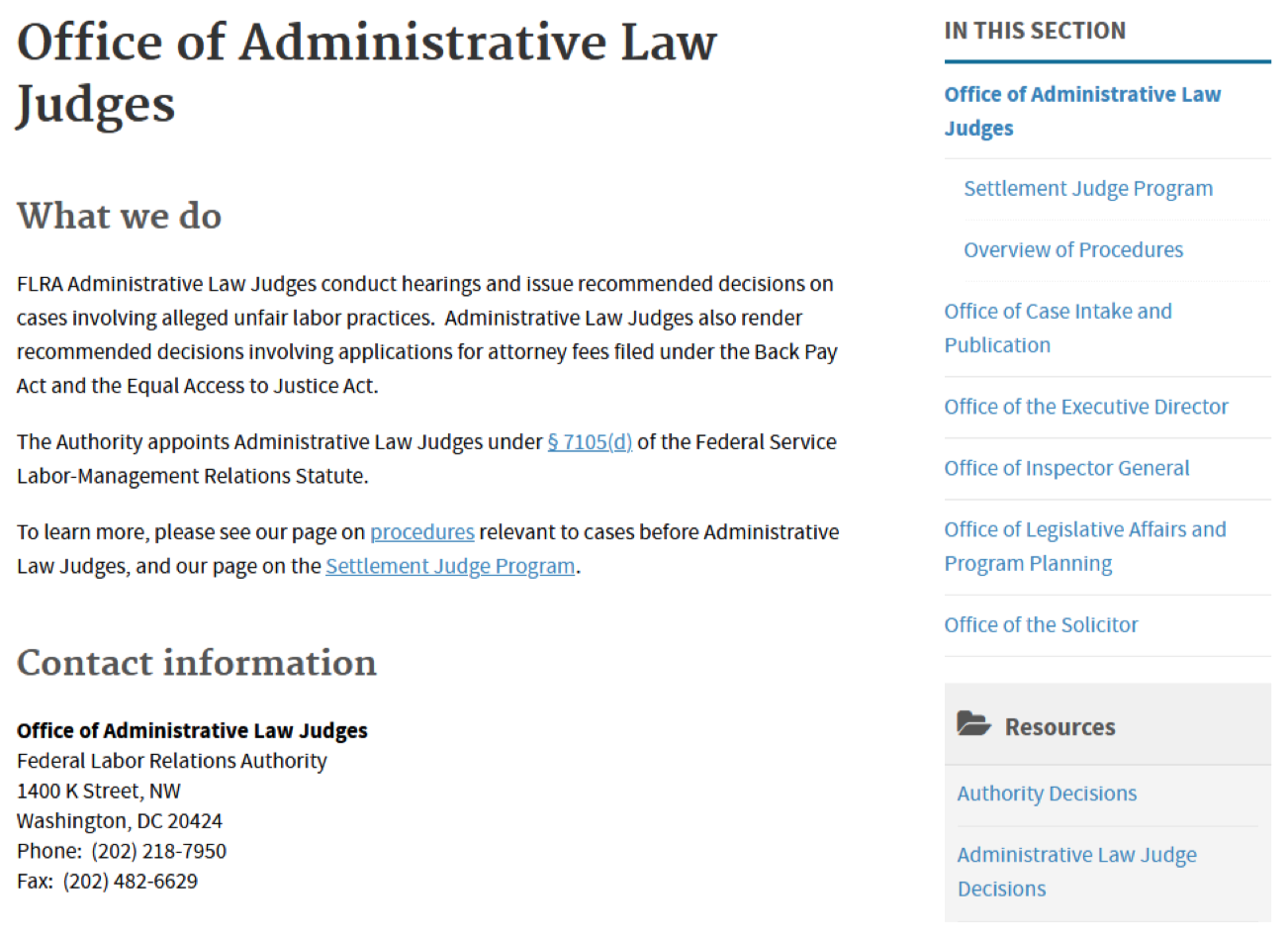Federal agency officials throughout the country preside over hundreds of thousands of adjudications each year.[1] As the Administrative Conference has previously observed, litigants, their lawyers, and other members of the public benefit from having ready online access to procedural rules, decisions, and other key materials associated with adjudications.[2] They also benefit from having ready online access to the policies and practices by which agencies appoint and oversee administrative law judges and other adjudicators. The availability of these policies and practices helps inform the public about, among other things, any actions agencies have taken to ensure the impartiality of administrative adjudicators[3] and promotes an understanding of adjudicators’ constitutional status under the Appointments Clause and other constitutional provisions. The Administrative Conference acknowledges ongoing litigation regarding the constitutional status of many agency adjudicators and the continuing validity of the means and circumstances of their appointment and removal.[4]
Agencies may benefit from disclosures about agency adjudicators because it allows them to compare their own policies with those made publicly available by other agencies. Agencies’ proactive disclosures, which may sometimes already be required under the Freedom of Information Act and the E-Government Act, may also be more cost-effective than agencies’ responding to individual requests for information.[5]
Like other recent recommendations regarding adjudicators,[6] this Recommendation pertains to officials who preside over (1) hearings governed by the formal hearing provisions of the Administrative Procedure Act (APA)[7] and (2) hearings that are not governed by those provisions but are required by statute, regulation, or executive order. It also covers officials (agency heads excluded) who review hearing-level adjudicators’ decisions on appeal. For ease of reference, this Recommendation refers to the covered adjudicators as either “administrative law judges” (ALJs) or “administrative judges” (AJs).[8] Agencies may decide to include on their websites the disclosures identified in this Recommendation for other adjudicators, depending on the level of formality of the proceedings over which they preside and whether they serve as full-time adjudicators. Agencies may also decide to make similar disclosures with respect to agency heads if their websites do not already provide sufficient information.
This Recommendation focuses on policies and practices relating to adjudicators that agencies should disclose, including those addressing appointment and qualifications; compensation (including salaries, bonuses, and performance incentives); duties and responsibilities; supervision and assignment of work; position within agencies’ organizational hierarchies; methods of evaluating performance; limitations on ex parte communications and other policies ensuring separation between adjudicative and enforcement functions; recusal and disqualification; the process for review of adjudications; and discipline and removal.
Many of the policies and practices applicable to ALJs governing these matters are already publicly available because they are in the APA, Office of Personnel Management rules, or other legal authorities.[9] Nevertheless, agencies that employ ALJs can take steps to improve the public’s access to this information.
ALJs, in any case, make up a small portion of federal adjudicators. There are many more AJs than ALJs.[10] AJs are regulated by a complex mix of statutory provisions, including civil service laws, agency rules codified in the Code of Federal Regulations, and agency-specific policies that take a variety of forms. Many types of information about AJs reside in these sources, but they may be difficult to find.[11] Some relevant sources may not be publicly available, including internal administrative and personnel manuals, position descriptions, and labor agreements. This is particularly true with respect to certain kinds of policies, such as those relating to compensation and performance incentives.[12] Of course, the Administrative Conference recognizes that some of these agency policies and practices may qualify for an exemption under the Freedom of Information Act,[13] Privacy Act,[14] or other laws and executive-branch policies.
Agency websites are the most helpful location for agencies to make relevant policies and practices publicly available. Individuals most naturally seek information about administrative policies and practices on agencies’ websites. Agencies can situate information about their adjudicators in a logical and easily identifiable place on their websites and structure their websites to synthesize policies in plain language and link to information from many different sources.[15]
This Recommendation encourages agencies to post on their websites clear and readily accessible descriptions of the policies governing the appointment and oversight of ALJs and AJs, and to include links to relevant legal documents. How, exactly, they should do so will of course depend on the specific features of their adjudicative programs and their institutional needs.
RECOMMENDATION
1. Each adjudicative agency should prominently display on its website a short, straightforward description of all generally applicable policies and practices, along with the legal authority, governing the appointment and oversight of Administrative Law Judges (ALJs) and Administrative Judges (AJs), including, as applicable, those that address:
a. Procedures for assessing, selecting, and appointing candidates for adjudicator positions and the legal authority under which such appointments are made;
b. Placement of adjudicators within agencies’ organizational hierarchies;
c. Compensation structure and performance incentives, such as bonuses, nonmonetary awards, and promotions;
d. Procedures for assigning cases;
e. Assignment, if any, of nonadjudicative duties to adjudicators;
f. Limitations on ex parte communications, including between adjudicators and other agency officials, related to the disposition of individual cases, as well as other policies ensuring a separation of adjudication and enforcement functions;
g. Standards for recusal by and disqualification of adjudicators;
h. Administrative review of adjudicators’ decisions;
i. Supervision of adjudicators by higher-level officials;
j. Evaluation of adjudicators, including quantitative and qualitative methods for appraising adjudicators’ performances, such as case-processing goals, if any; and
k. Discipline and removal of adjudicators.
Agencies may choose not to provide access to policies covered by a Freedom of Information Act exemption.
2. On the same webpage as the information described in Paragraph 1 appears, each adjudicative agency should post links to key legal documents or, when links are not available, citations to such documents. These documents may include (a) federal statutes, including relevant provisions of the Administrative Procedure Act (APA) and other laws applicable to ALJs and AJs; (b) agency-promulgated rules regarding adjudicators, including Office of Personnel Management rules applicable to ALJs; (c) publicly available agency-promulgated guidance documents relating to adjudicators, including manuals, bench books, and other explanatory materials; (d) delegations of authority; and (e) position descriptions. To the extent that some policies concerning adjudicators may be a matter of custom, such as assignment of nonadjudicative duties, each adjudicative agency should consider documenting those policies to make them publicly accessible to the extent practicable.
3. The webpage containing the information described in Paragraphs 1 and 2 should present the materials in a clear, logical, and comprehensive fashion. One possible method of presenting this information appears in Appendix A. The appendix gives one example for ALJs and another for AJs.
4. If an agency’s mission consists exclusively or almost exclusively of conducting adjudications, the agency should provide a link to the webpage containing the information described in Paragraphs 1 and 2 on the agency’s homepage. If conducting adjudications is one of an agency’s many functions, the agency should provide a link to these materials from a location on the website that is both dedicated to adjudicative materials and logical in terms of a user’s likelihood of finding the documents in the selected location. One example would be an enforcement or adjudication page or the homepage for the component in which a particular category of adjudicators works. Citations to agency webpages that currently provide this information in a way that makes it easy for the public to locate, as well as descriptions of how to find those pages on agency websites, appear in Appendix B.
[1] See Admin. Conf. of the U.S., Recommendation 2016-2, Aggregate Agency Adjudication, 81 Fed. Reg. 40,260, 40,260 (June 21, 2016).
[2] Admin. Conf. of the U.S., Recommendation 2018-5, Public Availability of Adjudication Rules, 84 Fed. Reg. 2142 (Feb. 6, 2019); Admin. Conf. of the U.S., Recommendation 2017-1, Adjudication Materials on Agency Websites, 82 Fed. Reg. 31,039 (July 5, 2017).
[3] Cf. Admin. Conf. of the U.S., Recommendation 2018-4, Recusal Rules for Administrative Adjudicators, 84 Fed. Reg. 2139 (Feb. 6, 2019).
[4] See, e.g., Lucia v. SEC, 138 S. Ct. 2044 (2018); Arthrex v. Smith & Nephew, 941 F.3d 1320 (Fed. Cir. 2019), cert. granted, __ S. Ct. __ (Oct. 13, 2020) (No. 19-1434).
[5] FOIA Improvement Act of 2016, Pub. L. No. 114-185, § 2, 130 Stat. 538, 538 (amending 5 U.S.C. § 552(a)(2)); E-Government Act of 2002, Pub. L. No. 140-347, § 206, 116 Stat. 2899, 2916 (amending 44 U.S.C. § 3501).
[6] See, e.g., Admin. Conf. of the U.S., Recommendation 2018-4, Recusal Rules for Administrative Adjudicators, 84 Fed. Reg. 2139 (Feb. 6, 2019).
[7] See 5 U.S.C. §§ 554, 556–57.
[8] The vast majority of ALJs work at the Social Security Administration. AJs work at many different agencies under a variety of titles, including not only “Administrative Judge” but also, by way of example, “Hearing Officer,” “Immigration Judge,” “Veterans Law Judge,” “Administrative Patent Judge,” and “Administrative Appeals Judge.”
[9] 5 U.S.C. §§ 554, 557, 3105, 4301, 5372, 7521; 5 C.F.R. pt. 930, subpt. B; Exec. Order No. 13,843, Executive Order Excepting Administrative Law Judges from the Competitive Service, 83 Fed. Reg. 32,755 (July 13, 2018) (issued July 10, 2018).
[10] Kent Barnett et al., Non-ALJ Adjudicators in Federal Agencies: Status, Selection, Oversight, and Removal 1 (Sept. 24, 2018) (report to the Admin. Conf. of the U.S.), https://www.acus.gov/report/non-alj-adjudicators-federal-agencies-status-selection-oversight-and-removal-1.
[11] Leigh Anne Schriever, Public Availability of Information About Adjudicators 10 (Nov. 23, 2020) (report to the Admin. Conf. of the U.S.), https://www.acus.gov/report/final-report-public-availability-information-about-agency-adjudicators.
[12] Id. at 7.
[13] 5 U.S.C. § 552.
[14] Id. § 552a.
[15] Cf. Admin. Conf. of the U.S., Recommendation 2017-3, Plain Language in Regulatory Drafting, 82 Fed. Reg. 61,728 (Dec. 29, 2017).
Citation: Admin. Conf. of the U.S., Recommendation 2020-5, Publication of Policies Governing Agency Adjudicators, 86 Fed. Reg. 6622 (Jan. 22, 2021).
APPENDIX A
Sample Website Text for Administrative Law Judges
About Our Administrative Law Judges
Administrative Law Judges (ALJs) at [agency] conduct hearings and decide cases under [insert name of authorizing act]. They are part of the [agency component in which ALJs are located], which is directed by [title of office head] and has offices in [cities]. Visit [link to agency organization chart] to see how [office] relates to other offices at [agency].
[Agency] is committed to ensuring that all hearings and appeals are conducted in a fair and equitable manner. Parties are entitled to a due process hearing presided over by an impartial, qualified ALJ. ALJs resolve cases involving [kinds of cases ALJs hear] in a fair, transparent, and accessible manner. Our ALJs are appointed by [agency official], and are [describe qualifications]. ALJs are paid according to the [pay scale for ALJs with link to the scale] scale set by statute under 5 U.S.C. § 5372, subject to annual pay adjustments.
Cases are assigned to ALJs [in each geographic office] in rotation so far as practicable. The ALJ assigned to your case is responsible for [job duties, like taking evidence, hearing objections, issuing decisions]. ALJs are required by statute to perform their functions impartially. 5 U.S.C. § 556(b). To ensure impartiality, they do not take part in investigative or enforcement activities, nor do they report to officials in the [agency]’s investigative or enforcement components. 5 U.S.C. §§ 554(d), 3105. The ALJ assigned to your case may not communicate privately about the facts of your case with other agency officials. [More details on [agency]’s rules about communicating with ALJs are available [location of agency-specific ex parte prohibitions]].
By law, [agency] does not reward or discipline ALJs for their decisions. A federal statute provides that [agency] may remove, or take certain other disciplinary actions, against an ALJ it employs only for good cause established and determined by the Merit Systems Protection Board on the record after opportunity for hearing before the Board. 5 U.S.C. § 7521.
The agency has adopted rules of recusal [link] that allow a participant to request that the ALJ in charge of his or her case be disqualified if the participant believes the ALJ cannot fairly and impartially decide the case.
If you are dissatisfied with an ALJ’s decision, you can request reconsideration from the ALJ or appeal that decision to [agency office/official]. Visit [link] for information on appealing an ALJ decision. [Agency office/official] may also review your case on [its/his or her] own initiative if there is an issue with the ALJ’s decision.
For Further Information:
- Hiring process: [link]
- Pay rates: [link]
- How cases are assigned to ALJs: [link]
- Communicating with ALJs (ex parte communications): [link]
- Process for addressing allegations that an ALJ has a conflict of interest (recusal and disqualification procedures): [link]
- How to appeal an ALJ decision: [link]
- Case-processing goals: [link]
- Process for addressing allegations of ALJ misconduct: [link]
See also:
- Statutory provisions governing ALJs: 5 U.S.C. §§ 554, 557, 3105, 4301, 5372, 7521
- OPM’s regulations governing ALJs: 5 C.F.R. §§ 930.205–930.207, 930.211
- MSPB’s regulations governing ALJs: 5 C.F.R. §§ 1201.127–1201.142
- [Additional legal provisions governing ALJs]
- Executive Orders pertaining to ALJs: E.O. 13,843 (giving agencies control over the hiring process of ALJs) [add other pertinent EOs]
Sample Website Text for Administrative Judges
If agencies have different kinds of adjudicators, they should consider providing a separate webpage for each.
About Our [Insert Adjudicator Title]
[Adjudicator title] at [agency] [conduct hearings and decide cases/review appeals] under [name of authorizing act(s)]. They are part of the [agency component in which adjudicators are located], which is directed by [title of office head] and has offices in [cities]. Visit [link to agency organization chart] to see how [office] relates to other offices at [agency].
[Agency] is committed to ensuring that all hearings and appeals are conducted in a fair and equitable manner. Parties are entitled to a due process hearing presided over by an impartial, qualified [adjudicator title]. [Adjudicator title] resolve cases involving [kinds of cases] in a fair, transparent, and accessible manner. Our [adjudicator title] are appointed pursuant to [authorizing statute] by [agency official] [for terms of [number of years] years], and are [describe qualifications]. [Adjudicator title] are paid according to [[the pay scale for the adjudicator with link to the scale] or [the discretion of the agency head]].
Cases are [describe how cases are assigned]. The [adjudicator title] assigned to your case is responsible for [job duties, like taking evidence, hearing objections, issuing decisions]. [Description of policies (if any exist) that ensure the agency component or adjudicators remain independent from investigative or enforcement activities]. [Description of rules about ex parte communications, if any exist].
[Agency official or body] is responsible for evaluating the quality of [adjudicator title] decisions, and [agency official or body] conducts performance reviews of [adjudicator title]. [Agency official/entity from another agency] may remove the [adjudicator title] or [agency official or body/other entity] may discipline the [adjudicator title] by [kinds of discipline] when warranted.
The agency has adopted rules of recusal [link] that allow a participant to request that the [adjudicator title] in charge of his or her case be disqualified if the participant believes the [adjudicator title] cannot fairly and impartially decide the case.
If you are dissatisfied with an [adjudicator title] decision, you can request reconsideration from the [adjudicator title] or appeal that decision to [agency office/official]. Visit [link] for information on appealing an [adjudicator title] decision. [Agency office/official] may also review your case on [its/his or her] own initiative if there is an issue with the [adjudicator title]’s decision.
For Further Information:
- Hiring process: [link]
- Pay rates: [link]
- Bonuses and performance incentives: [link]
- How cases are assigned to [adjudicator title]: [link]
- Communicating with [adjudicator title] (ex parte communications): [link]
- Process for addressing allegations that an [adjudicator title] has a conflict of interest (recusal and disqualification procedures): [link]
- How to appeal an [adjudicator title] decision: [link]
- Case-processing goals: [link]
- Process for addressing allegations of [adjudicator title] misconduct: [link]
See also:
- Statutory provisions regarding [adjudicator title], including the appointment authority: [statutory citations]
Agency regulations governing [adjudicator title]: [C.F.R. provisions]
APPENDIX B
Example 1 – Department of Labor’s Office of Administrative Law Judges
The website of the Office of Administrative Law Judges provides an example of how agencies can intuitively place information about adjudicators on their websites in plain-language text with citations. It is easy to find because a link to it is placed on the homepage for the Office of Administrative Law Judges.
Citation: About the Office of Administrative Law Judges, U.S. Dep’t of Labor, https://www.dol.gov/agencies/oalj/about/ALJMISSN (last visited Dec. 21, 2020).
How to Find:
1. Go to the Department of Labor Website (www.dol.gov) and click on the “Agencies Tab,” which should bring up a drop-down menu. Click on “Office of Administrative Law Judges (OALJ).”
|
|
2. Scroll down to the bottom of the OALJ page and click on “About OALJ.”
|
|
3. The “About the Office of Administrative Law Judges” page includes information about the locations of administrative law judges (ALJs), the authority under which they are appointed, and the kinds of cases heard by ALJs.
|
|
Example 2 – Department of Health and Human Service’s Office of Medicare Hearings and Appeals
The website of the Office of Medicare Hearings and Appeals shows a clear and intuitive way agencies can organize information about adjudicators. The link to the “About OMHA” page is easy to find from the main page for the Office of Medicare Hearings and Appeals, which contains a link to it.
Citation: About OMHA, U.S. Dep’t of Health & Human Servs., https://www.hhs.gov/about/agencies/omha/about/index.html (last visited Dec. 21, 2020).
How to Find:
1. Go to the main page for OMHA (https://www.hhs.gov/about/agencies/omha/index.html) and click on “About OMHA” on the left side.
|
|
2. The “About OMHA” page includes information about what cases ALJs at OMHA hear and the organization of the agency.
|
|
Example 3 – Internal Revenue Service’s Independent Office of Appeals
The website of the Independent Office of Appeals presents an example of how agencies can use website text to reassure the public about their adjudicators’ independence and impartiality in plain language. The IRS website has a link to the Independent Office of Appeals webpage on its main page. The first sentence of the Office’s homepage includes a hyperlink to a page containing more information about its adjudications, including details about ex parte communications and the separation of adjudicative functions from other agency functions.
Citation: Appeals – An Independent Organization, I.R.S., https://www.irs.gov/appeals/appeals-an-independent-organization (last visited Dec. 21, 2020).
How to Find:
1. Go to the IRS’s home page (www.irs.gov) and scroll down to the bottom. Click on “Independent Office of Appeals.”
|
|
2. Click on “Independent Office of Appeals” in the first sentence on the webpage.
|
|
3. The “Appeals – An Independent Organization” page includes information about the agency’s relationship with other agency components and provides an explanation about the rules around ex parte communications.
|
|
Example 4 – Federal Labor Relations Authority
The website of the Federal Labor Relations Authority provides a good example of how agencies can create an easily located page that is accessible from the main page and that provides information about the appointment and job duties of the adjudicators.
Citation: Office of Administrative Law Judges, Fed. Labor Relations Auth., https://www.flra.gov/components-offices/offices/office-administrative-law-judges (last visited Dec. 21, 2020).
How to Find:
1. Go to the FLRA website (www.flra.gov) and click on “Components & Offices.”
|
|
2. Click on “Office of Administrative Law Judges.”
|
|
3. The “Office of Administrative Law Judges” page includes information about office location, the authority for the appointment of ALJs, and descriptions of the kinds of cases ALJs hear.
|
|

